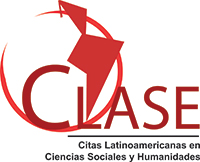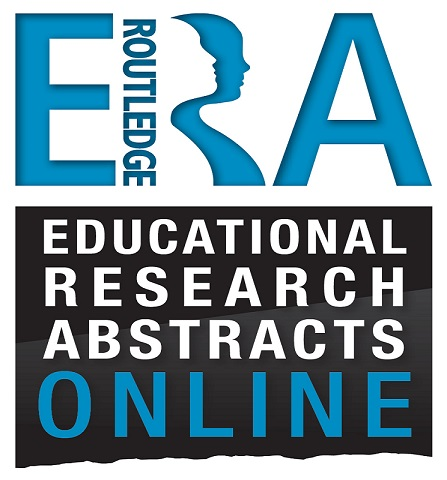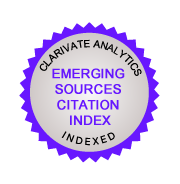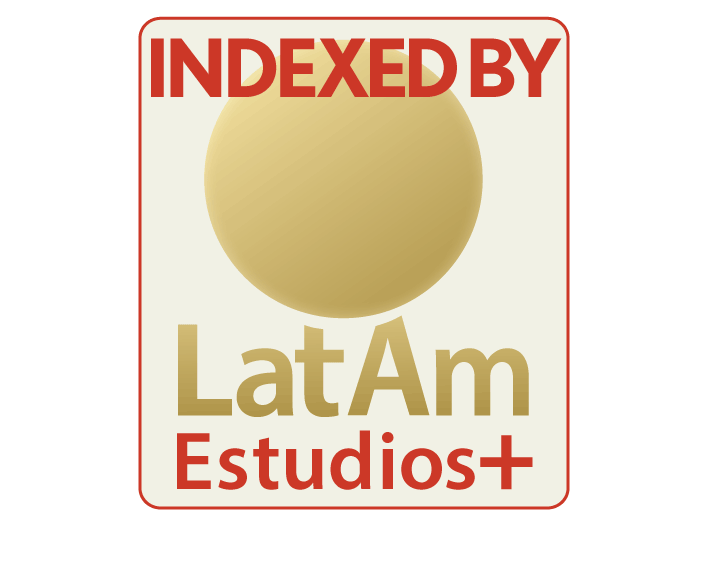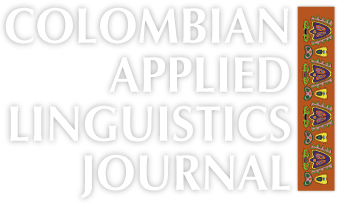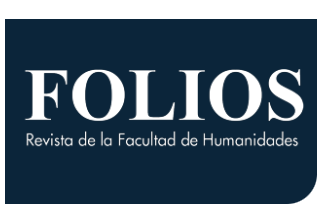
Published
Citizenship Education and the EFL Standards: A Critical Reflection
La educación ciudadana y los estándares básicos de competencias en el inglés como lengua extranjera: una reflexión crítica
DOI:
https://doi.org/10.15446/profile.v19n1.55676Keywords:
Citizenship, competences, English as a foreign language, global citizenship education, globalization (en)ciudadanía, competencias, educación para la ciudadanía global, inglés como lengua extranjera, globalización (es)
The reconfiguration of geographical and cultural boundaries has caused a growing concern among countries in regard to raising awareness of the importance of educating people to become “citizens of the world.” The language classroom seems to be the ideal place to incorporate the teaching and learning of global citizenship education, given its cross-cultural nature. This article intends to analyze the potential opportunities for the development of global citizenship education in the English as a foreign language classroom through a documentary analysis of the national standards and its connection to the national citizenship competences standards and the UNESCO global citizenship education topics and learning objectives. Finally, important recommendations are given to foster global citizenship in the English language classroom.
https://doi.org/10.15446/profile.v19n1.55676
Citizenship Education and the EFL Standards: A Critical Reflection
La educación ciudadana y los estándares básicos de competencias en el inglés como lengua extranjera: una reflexión crítica
Luzkarime Calle Díaz*
Universidad del Norte, Barranquilla, Colombia
This article was received on February 10, 2016, and accepted on October 19, 2016.
How to cite this article (APA 6th ed.):
Calle Díaz, L. (2017). Citizenship education and the EFL standards: A critical reflection. PROFILE Issues in Teachers’ Professional Development, 19(1), 155-168. https://doi.org/10.15446/profile.v19n1.55676.
This is an Open Access article distributed under the terms of the Creative Commons license Attribution-NonCommercial-NoDerivatives 4.0 International License. Consultation is possible at http://creativecommons.org/licenses/by-nc-nd/4.0/.
The reconfiguration of geographical and cultural boundaries has caused a growing concern among countries in regard to raising awareness of the importance of educating people to become “citizens of the world.” The language classroom seems to be the ideal place to incorporate the teaching and learning of global citizenship education, given its cross-cultural nature. This article intends to analyze the potential opportunities for the development of global citizenship education in the English as a foreign language classroom through a documentary analysis of the national standards and its connection to the national citizenship competences standards and the UNESCO global citizenship education topics and learning objectives. Finally, important recommendations are given to foster global citizenship in the English language classroom.
Key words: Citizenship, competences, English as a foreign language, global citizenship education, globalization.
La reconfiguración de fronteras geográficas y culturales ha causado una creciente preocupación entre los países sobre la importancia de educar a “ciudadanos del mundo”. El aula de lenguas parece ser el lugar ideal para incorporar la educación para la ciudadanía global debido a su naturaleza intercultural. Este artículo busca evidenciar las oportunidades potenciales para el desarrollo de la educación para la ciudadanía global que pueden darse en el aula de inglés, a través de una revisión documental de los estándares básicos de esta lengua y su conexión con los estándares de competencias ciudadanas y los temas y objetivos de aprendizaje de la educación para la ciudadanía global de la UNESCO. Finalmente, se brindan recomendaciones importantes para potencializar la ciudadanía global en el aula de inglés.
Palabras clave: ciudadanía, competencias, educación para la ciudadanía global, inglés como lengua extranjera, globalización.
Introduction
Living in the 21st century poses a series of challenges for societies. The world is now more connected than ever before, allowing the possibility for socio-cultural exchanges amongst people from different countries and backgrounds. Societies have become more aware of the variety of cultures that exist around the world, and individuals are being encouraged to embrace diversity at many new different levels. The reconfiguration of geographical and cultural boundaries has led to the redefinition of the notion of citizenship and the increased need to raise awareness about the importance of educating people as “citizens of the world” (Evans, 2016).
Education stakeholders, especially teachers, have the responsibility to contribute to students’ development of global citizenship skills and values, but in order to do that; they need to be global citizens themselves prepared to integrate global citizenship knowledge, skills, and attitudes in their lessons. On the global scale, UNESCO has recently published a document that provides guidance on how to implement global citizenship education (GCE) in the classroom (UNESCO, 2015).
In Colombia, important efforts have been made to incorporate citizenship education in the school curricula. For instance, the Ministry of Education (Ministerio de Educación Nacional [MEN], 2004) issued the standards for citizenship competences. Some schools have introduced a new subject called competencias ciudadanas (citizenship competences) or ciudadanía (citizenship), and others have tried to incorporate the standards in all subject areas transversally. Nevertheless, traditionally, the connection between English language teaching (ELT) and GCE has not been a point of concern, even though the foreign language classroom seems to be the ideal space to develop global citizenship (Birch, 2009; Guilherme, 2002), and to create opportunities to strengthen local identity and foster understanding, tolerance, and acceptance of diversity at local, regional, national, and international levels. This is especially relevant for Colombia at a time when the country is struggling to become an increasingly active participant in the world scenario, and also to reach a peaceful resolution to years of violence and confrontation.
In this article, I will present an analysis of the relationship between GCE knowledge, skills, and attitudes, and the Colombian English as a foreign language (EFL) standards. Thus, I will first give a brief overview of the notion of citizenship throughout history. Then, I will describe the concept of citizenship education and how GCE has developed up to the present. After that, I will concentrate on analyzing citizenship education opportunities in the EFL curriculum, more specifically as prompted by the EFL Colombian standards. Finally, I will present conclusions and some recommendations regarding the potential of the English classroom as the central scenario for the development of GCE.
Literature Review
Notions of Citizenship
The concept of citizenship is not univocal. It has evolved throughout history, taking a plethora of meanings across societies. The history of citizenship goes back to very ancient people such as the Athenians, Spartans, and Romans (Horrach, 2009; Preuss, 2003). Then, the French Revolution marked another important milestone in the history of citizenship. Civil mobilization by the middle class, who requested the right to participate in political decisions, caused a change of perspective about who was considered a citizen both within and beyond French borders (Horrach, 2009).
Nowadays, citizenship has permeated not only historical but also political and educational discourse acknowledging the importance of citizenship for the development of healthy societies. However, what is understood by the term citizenship? Many different definitions can be found in the literature (Dagnino, 2005; Horrach, 2009; Pérez, 2002; Preuss, 2003).
A superficial definition of citizenship, synonymous to nationality (Horrach, 2009; Kerber, 1997) can be found in the dictionary: “someone who legally belongs to a particular country and has rights and responsibilities there, whether they are living there or not” (Pearson, 2008, p. 305). Nevertheless, being a citizen in the post-modern world has come to include many other dimensions that include legal, political, social, cultural, and identity-related ones (Preuss, 2003).
Furthermore, a spectrum of different views on citizenship can be found in Dagnino (2005), where a superficial notion of citizenship, that is, citizens as the population of a state, inhabitants, or bearers of rights can be found on one end; the notion of “citizenship participation,” namely the right that people have to participate in public affairs could be placed in the middle; and radical conception of citizenship is put at the other end of the spectrum, which advocates for citizen involvement in decision-making about, for example, public policies, or even distribution of the national budget. Dagnino points out that the notion of citizenship is highly permeated by particular configurations of society, power, state, and history.
More recently, the role of citizens has been redefined to fit neoliberal or capitalist agendas (Dagnino, 2005), positioning them either as producers or consumers. There is evidence, then, that the term citizenship has become more and more ambiguous as different political, economic, and private interests use it for their own purposes.
In sum, the notion of citizenship has evolved with the development of societies throughout history. Nowadays, citizenship is in the center of international debates about human development, education, and the future of humankind. Schools are entitled to work towards the education of good citizens, able to critically participate in the democratic construction of societies, with a sense of identity, able to work with others and to make responsible decisions about themselves and the environment (Delors, 1996; Kymlicka, 2001; UNESCO, 1990). This responds to the principles emanating from the Universal Declaration of Human Rights, which calls for “understanding, tolerance and friendship among all nations, racial or religious groups” (Article 26).
In accordance with this, Delors (1996) pointed out that the role of education is to help to build “a more solidary world...in a way education should contribute to the birth of a new humanism, with an essential ethical component and ample space for knowledge and respect of cultures and values of different civilizations” (p. 53).
The education for citizenship debate has been illuminated by a series of multinational statements such as the UNESCO Declaration and Integrated Framework of Action on Education for Peace, Human Rights and Democracy (UNESCO, 1995), and with a series of aims related to the development of informed and critical citizens. This fact has led to the development of national policies and projects aiming at peaceful conflict resolution, recognition and acceptance of diversity, and protection of the environment, among others.
All in all, the centrality of citizenship education in today’s society is widely recognized. However, policies are sometimes not enough to materialize the development of citizenship skills and attitudes at school or in daily life scenarios.
Global Citizenship Education
In recent years, the issue of citizenship education has been expanded to that of GCE, also known as cosmopolitan, multicultural, universal, planetary, and/or virtual citizenship (Evans, Ingram, Macdonald, & Weber, 2009). UNESCO has played a pivotal role in defining and highlighting the importance of GCE, especially after the adoption of the Global Education First Initiative (United Nations, 2012), in which “fostering global citizenship” is one of the three educational priorities. Besides, GCE plays an important role in the UNESCO Education Strategy 2014-2021 (UNESCO, 2014a), in which the second objective is “empowering learners to be creative and responsible global citizens” (p. 31).
GCE has been taken as an umbrella term that comprises earlier developments on education as the basis to achieve sustainable development, peace, values, civics, human rights, global education, intercultural awareness education, environmental education, education for social justice and equity, among others (Evans et al., 2009; Tawil, 2013).
The first attempt to consolidate a definition of GCE and the need for its implementation was made public in the synthesis Global Citizenship Education: An Emerging Perspective, a document elaborated by UNESCO and the Republic of Korea (UNESCO, 2013). This states that the main aim of GCE is “to empower learners to engage and assume active roles both locally and globally to face and resolve global challenges and ultimately to become proactive contributors to a more just, peaceful, tolerant, inclusive, secure and sustainable world” (p. 3). In 2014, UNESCO published the first official document on GCE titled Global Citizenship Education: Preparing Learners for the Challenges of the 21st Century (UNESCO, 2014b). This is a more comprehensive document that provides useful information on what GCE is and how it can be put into practice.
In order to provide guidance to implement and assess GCE in the classroom, UNESCO launched the Topics and Learning Objectives for Global Citizenship Education in 2015. It explains how GCE involves three core conceptual dimensions: cognitive, socio-emotional, and behavioral. These are defined as follows:
- Cognitive: To acquire knowledge, understanding, and critical thinking about global, regional, national, and local issues and the interconnectedness and interdependency of different countries and populations.
- Socio-emotional: To have a sense of belonging to a common humanity, sharing values and responsibilities, empathy, solidarity, and respect for differences and diversity.
- Behavioral: To act effectively and responsibly at local, national, and global levels for a more peaceful and sustainable world. (p. 15)
The UNESCO initiative on GCE has been built, as suggested before, upon previous developments in this respect (peace building, civics, and sustainable development, among others) (see Evans et. al., 2009; Oxfam, 2006).
What started out as an initiative of individual countries has now become a multinational organizations agenda. However, practicing GCE poses a series of challenges. One of them, perhaps the most important one, is precisely how to take GCE from paper to reality. That is, how to teach it and how to verify that students are actually internalizing it. Undoubtedly, the guidelines provided by UNESCO provide useful ideas for the implementation and monitoring of GCE. However, more studies on how they are applied and used in the classrooms need to be done, and results shared with the different stakeholders to value their actual impact.
Citizenship Education in Colombia
Colombia is located in the Northwest region of South America. With over 48 million people, Colombia has the third largest population in Latin America. The country has a social and democratic political structure, with a presidential form of government. Education in Colombia officially consists of three levels: Transición (pre-school) and Básica primaria (elementary school), which covers six years, and to which students access at the age of 5 and exit at the age of 11; Básica secundaria (secondary school), which goes from 6th to 9th grades; and Media vocacional (high school), which covers 10th and 11th grades. Students finish high school at the average age of 16. Colombian public education system is free and is usually accessed or utilized by students in the lower social classes. Middle- and high-class children regularly go to private schools, some of which offer bilingual education in English and Spanish. All schools in Colombia are monitored and measured through the same standard test that is called SABER. This test is applied at different times in the school system (3rd, 5th, 7th, 9th, and 11th grades), and results and rankings are analyzed and shared with the community. Students are tested in mathematics, critical reading, social studies and citizenship, science, and English. With this test, results are also reported in two sub-sections: citizenship competences and quantitative reasoning (ICFES, 2015).
Colombia has been cited as an example of integration of citizenship education in the school curriculum, together with countries such as Canada, England, Australia, The United States, The Philippines, Brazil, and Costa Rica, among others (Organización de Estados Iberoamericanos para la Educación, la Ciencia y la Cultura, 2014; UNESCO, 2015). It is undeniable that efforts have been placed on promoting the development of citizenship knowledge, skills, and values in the country, first with the publication of the Basic Standards for Citizenship Competences (MEN, 2004), and more recently with the law enforcing the creation of a peace chair (Cátedra de la Paz) in 2014 and the corresponding regulating resolution in 2015.
The Standards for Citizenship Competences aim at developing the necessary knowledge and skills (cognitive, emotional, and communicative) to participate democratically in society, value pluralism, and build peaceful living together (MEN, 2004). According to Jaramillo (2008), the Citizenship Competences program is not based exclusively on the acquisition of knowledge of democracy and citizenship. Beyond that, the emphasis is placed especially on “the development of skills, attitudes, actions, and reflections that foster peace and living together, promote democratic participation and responsibility, and strengthen cultural, social, genre differences, among others” (p. 66). Ruiz and Chaux (2005) had supported these ideas when they stated that “citizenship competences are evidenced through practice, in the exercise of citizenship” (p. 32). That is, citizenship education seeks to promote autonomous citizenship action. They define citizenship competences as the “set of cognitive, emotional, and communicative-integrated capacities and abilities related to basic knowledge (contents, procedures, mechanisms) that morally and politically orient our citizenship action” (p. 32).
This governmental initiative encourages a cross-curricular approach to the implementation of citizenship education. That is, the responsibility of putting into practice the standards and competences established is shared among all the subjects of the curriculum, as well as by the different stakeholders (administrators, teachers, students, family, etc.). The citizenship competences proposed have been classified into three macro-groups: peace and living together; democratic participation and responsibility; and plurality, identity, and valuing of the differences. “Each of these groups represents a fundamental dimension for the exercise of citizenship and contributes to the promotion, respect, and defense of human rights, present in our Constitution” (MEN, 2004, p. 12). At the same time, the competences have been categorized into five types: knowledge, cognitive, emotional, communicative, and integrative. Considering this categorization, the document presents teachers, students, and families with a list of standards that go from 1st to 11th grades of the Colombian school system. Based on the decentralization of the Colombian education system and the autonomy schools have to build their curricula to fit their context, implementation of the standards varies from school to school. Some of them have decided to incorporate a separate class called competencias ciudadanas (citizenship competences) or ciudadanía (citizenship) that is usually placed within the Social Sciences area or department. Some others have incorporated them, as the document suggests, as a cross-curricular endeavor.
As for the Peace Chair, it was created by law 1732 of 2014 and later regulated through a corresponding decree, which stipulates that schools should develop at least two of the following topics in this class: (a) justice and human rights; (b) sustainable use of natural resources; (c) protection of cultural and natural wealth of the nation; (d) peaceful resolution of conflict; (e) bullying prevention; (f) diversity and plurality; (g) participation in politics; (h) historical memory; (i) moral dilemmas; (j) social impact projects; (k) history of national and international peace agreements; (l) life projects and risk prevention.
With respect to the evaluation of the Peace Chair, the decree announces that the objectives related to this class will be included in the national SABER test as part of the Citizenship Competences section, starting in 2016.
The two regulations mentioned above might be regarded as complementary; however, the Standards were intended to be implemented through a cross-curricular approach, while the Peace Chair is clearly proposed as a separate subject.
In its efforts to foster civic and citizenship education, Colombia has also taken part in different international studies since 1999. More recently, between 2008 and 2009, the International Association for the Evaluation of Educational Achievement conducted the International Civic and Citizenship Education Study (ICCS) across 38 countries in the world. The study ranks students in levels 1 to 3 according to their performance on the civics and citizenship component of the test. The results of this study show that there is still a long way ahead for Colombian people to achieve international standards for citizenship education. For example, in the area of civic knowledge, Colombia ranked 29 out of the 38 participating countries, with an average score of 462 (38 points below the ICCS average) (Schulz, Ainley, Fraillon, Kerr, & Losito, 2010). On the other hand, most of the students who participated in the test scored at level 1 (36%) and below level 1 (21%). Level 1 is the most basic level in the study. Students at this level are familiar with the democratic principles of equity, social cohesion, and freedom, and they relate those principles to everyday situations. Only 11% of the Colombian students tested obtained results equivalent to the highest level of performance (level 3). At this level, students should be able to make connections between processes of political and social organization, and the legal and institutional mechanisms used to control them. They should also generate precise hypotheses about citizen motivations, and evaluate political stances based on their underlying principles (ICFES, 2011).
Citizenship Education in English as a Foreign Language
As has been stated throughout this article, school plays a major role in educating world citizens. This includes all subjects in the curriculum, and especially English as a foreign language. Foreign language classrooms seem to be the ideal place to foster the development of global citizenship, due to their cross-cultural nature. Guilherme (2002) supports this idea by affirming that,
the political, economic, and social contexts our future citizens will have to come to terms with demand a notion of citizenship education that is more flexible but, at the same time, more empowering and, for this purpose, it is foreign language/culture education that helps facilitate intercultural communication among citizens in multicultural societies and in a global world (p. 166).
In her view, the language classroom should be a place where “the Self,” “the Other,” and “the world” are in constant interaction through a critical view, allowing cross cultural and social boundaries to expand and hopefully encouraging students and teachers to become more participative in democratic and political societies.
Oxfam (2015), in its guide for teaching English and global citizenship, states that
a Global Citizenship approach [to English teaching] provides the meaningful wider contexts necessary for language and literature to be fully understood. It enables learners to appreciate a range of perspectives, exploring how texts from different social, historical, and cultural contexts influence values, assumptions, and a sense of identity (p. 1).
Teaching English through a GCE perspective, at the same time, will allow students to become more critical about their role in the world, and about how to build empathy and positive relationships with others, which should be one of the ultimate goals of foreign language education.
In order to contribute to the education of world active citizens, foreign language education in Colombia should be articulated to the GCE international goals and objectives, and to the national citizenship competences standards. The following analysis will try to show potential gaps and opportunities for their integration and some recommendations will be provided for the promotion of GCE development in the English classroom.
Analysis of the National Standards
The Colombian standards for foreign languages: English, is a document that was published by the Ministry of Education in 2006, with the objective of “contributing to the education of citizens capable of communicating in English, with internationally comparable standards” (MEN, 2006). Just as in other subjects, the EFL standards constitute “clear and public criteria that allow the establishment of the basic quality levels that children in all regions in Colombia have the right to achieve” (MEN, 2006). The standards were established by a group of teachers from around the country. They are based on the Common European Framework for Reference (CEFR) and they present “can do” type statements for elementary, secondary, and high school education in five skills (listening, reading, writing, monologues, and conversation). The aim is to take students from an A1 to a B1 level throughout the education system.
Although this document has received some criticism from the Colombian academic community (see Ayala & Álvarez, 2004; Barletta, 2009; de Mejía, 2011; Guerrero, 2010; Guerrero & Quintero, 2009; Sánchez & Obando, 2008; Vargas, Tejada, & Colmenares, 2008; among others), in this article I intend to move beyond criticism in order to provide some conclusions about the opportunities to incorporate GCE in light of the current language policy and suggest some course of action for the actual fostering of GCE in the EFL classroom.
The analysis of the standards was data-driven and done in three steps: First, I carried out a meticulous reading of the standards to identify any explicit opportunities for the teaching of citizenship education. The standards found were classified on a table. Then, I analyzed the national Citizenship Competences Standards (CCS) and found some that could be associated with each of the EFL standards in the table, specifying the grade in which it is supposed to be developed. Finally, I went through the GCE dimensions (as explained in the Global Citizenship Education section) and also found connections between them and the EFL standards.
The result of the analysis is divided into three sections: General Findings, the Role of Reading in the Colombian EFL Standards, and Standards That Can Potentially Help Develop GCE depending on how teachers approach them.
General Findings
There is very little evidence of the possibility of developing GCE if practice adheres strictly to the standards. Here are some of the most interesting findings of the analysis:
- The EFL Colombian standards do not explicitly refer to the development of global citizenship competences. Furthermore, most of the intercultural and critical aspects of learning a language are not considered in the standards. As mentioned before, attention and fulfillment of the standards alone may not contribute to fostering GCE in the English classroom.
- When standards do promote some traits of citizenship, they refer to some themes of the socio-emotional domain of learning (UNESCO, 2015). Some examples of this are shown in Table 1.
On the other hand, very few themes from the cognitive domain and none from the behavioral were found. This could be considered as a limitation of the Colombian standards, neglecting knowledge and action, which are vital for educating real active global citizens.
- The standards that foster some traits of citizenship development are those associated with the sociolinguistic competence.1 However, they reflect a superficial notion of global citizenship. In Gogolin’s (2011) words, these standards address the first skill level of intercultural education, key to GCE, namely, “knowledge on phenomena in which cultural, linguistic, and social diversity is expressed (e.g., clothing, food, daily routines, names, ways of talking, rituals or other religion expressions, festivals, holidays, etc.)” (p. 3). Table 2 shows examples of this.
As can be noticed from the examples in Table 2, although there is a connection between the standards and the theme, this connection is superficial and will not ensure the achievement of the learning objective related to the different levels of identity.
Most traits of global citizenship development present in the Colombian EFL standards target the pre-primary and lower primary learning objectives (UNESCO, 2015) and primary citizenship standards for (early) primary grades (Colombian Citizenship Standards). Table 3 shows some examples of this.
As can be observed, the standards related to GCE for the upper secondary grades reflect very basic skills in terms of global citizenship. This may be related to the fact that students’ language level in English is not very high and the assumption that more sophisticated citizenship standards can be achieved with better command of the language. However, it is important to ensure that the tasks performed by students are also at their appropriate cognitive level. The analysis suggests that students are not likely to reach a critical and profound development of GCE in their English lessons.
The Colombian EFL standards seem to be more connected to the UNESCO GCE Topics and Learning Objectives than to the Colombian Citizenship Competences. If the purpose of establishing the Colombian Citizenship Competences in 2004 was to permeate all areas of the curriculum, then the connection between these and the specific areas standards should be more visible or explicit.
The Role of Reading in the Colombian EFL Standards
There is a tendency to use reading as the starting point to expose students to texts that will awaken their interest in global issues (Jordão & Fogaça, 2008; Nakamura, 2002; Porto, 2014; Tarasheva, 2008). Departing from there, teachers can of course enhance the development of all the necessary language skills. The analysis of the standards showed that they are not stated in a way that will favor the development of GCE. In other words, reading is considered to be something students should enjoy (1st-3rd grades); a habit for students’ personal and academic enrichment (6th-7th grades); an important activity in students’ life areas (8th-9th grades); a means for acquiring information about different disciplines (10th-11th grades). However, there is no reference to reading as an opportunity to discover other worldviews, subjectivity, global problems; or to understand conflicting or complex messages, or equality or discrimination concepts, among others.
Standards That Can Potentially Help Develop GCE
Some standards are not clearly stated to develop citizenship education but could be used to do so depending on how the teacher uses them or on the topics s/he chooses to work on. Some of these are shown in Table 4.
The standards in Table 4, and other similar ones, might help to develop GCE if the teachers decide to include topics, materials, and tasks that promote students’ involvement in and response to global issues related to intercultural, environmental, identity, and social problems, among others. It is important to emphasize here that it does not only depend on the content but also, and perhaps more importantly, on the tasks that students are called to perform. Let us not forget that GCE is suggested to be tackled not only from the cognitive, but also from the socio-emotional, and more profoundly, from the behavioral domain of learning; that is, from the actions that students can actually take to transform their reality, and hence, the world.
Conclusions
GCE is regarded as a vital goal in all educational settings nowadays. This notion has evolved throughout history and has been established as an umbrella concept to embrace intentions to educate people to be able to interact with dynamic global issues related to environmental care and sustainable development, intercultural relationships, identity, and peace building, among others. This article presented an overview of the evolution of the notion of citizenship and citizenship education in Colombia up to the present with the purpose of analyzing the possibilities of GCE in a specific subject area, such as EFL teaching. An analysis of the integration of GCE goals and objectives in the Colombian EFL standards was made in order to reflect on the possibilities for Colombian English education to take a central and innovative role in the development of GCE as part of an area of the curriculum that is not necessarily linked to social studies.
The analysis done of the EFL standards revealed some discrepancies between the objective of educating competent citizens throughout the school curriculum in Colombia and the prevalence of the objectives of EFL teaching mostly targeting goals. The analysis revealed three main findings: Firstly, the official documents could have a more explicit approach towards the incorporation of GCE in a subject like foreign language, where self-identity and acceptance of others play such a crucial role. Secondly, the opportunities for citizenship education in EFL are targeted to the lower-level skills proposed in the national CCS. Finally, reading seems to be the skill through which GCE is usually suggested to be developed. This is coherent with a worldwide tendency of planning and implementing GCE programs through critical literacy.
After completing the analysis mentioned, the following conclusions could be drawn:
- Basic competences standards in Colombia have been published as guiding documents for schools’ curricular organization in the most important subject areas, including English. That being stated, if citizenship education is to become a core goal of the school system, and developed throughout all areas of the curriculum, then all subject standards should clearly reflect a connection between citizenship education and subject areas goals and objectives. In this train of thought, there should be some considerations for reviewing the standards with the purpose of making citizenship education visible and feasible in the classroom.
- The EFL classroom should be an important place for the development of GCE due to its possibility of allowing students to explore diverse identities and cultures. Then, an appropriate content and methodology of the English lessons should be chosen in order to make GCE an everyday issue in the classroom. Undertaking citizenship education means departing from the traditional teaching of grammar patterns and vocabulary. The interaction patterns inside the language classroom should also be a rehearsal of democratic and respectful relations that can later be replicated outside the school.
- In order for GCE to become a reality in the English classroom, teachers should be educated to become global citizens, as well as to be able to promote GCE in the classroom. Teachers should be provided theoretical and methodological tools with which to teach English and promote GCE at the same time. This includes dealing with contents and concepts related to citizenship values, attitudes, and actions to introduce positive changes and relations with others. The need to include GCE topics and learning objectives in the pre-service teacher education programs is imminent.
- Human relations are built around language, and foreign language education is mainly about using language that enables relations with others that are distant and different from us. Therefore, foreign language education should provide opportunities to reflect on the language we use and the effect it has on others. Helping students to become aware of their linguistic choices (language to empower oneself and others, to avoid disempowering others, to establish healthy and fair relationships, etc.) in order to interact with others is also key for GCE development.
- Finally, it is important to encourage or support research on how to teach and evaluate GCE in the EFL classroom, and on the impact of pedagogical proposals for the development of citizenship skills and attitudes.
One last optimistic claim can be made about the integration of GCE in EFL, and it is the fact that, in 2015, the national government started the design, piloting, and implementation of a suggested National English Curriculum. The first part of this curriculum, corresponding to secondary education, was released in January 2016 and its most important principles are based on diversity, equity, and citizenship. This is definitely one initiative that could impact the development of GCE if a process of teacher education and follow-up is carried out. Of course, research on this issue will have to be done to analyze how the curriculum works in the reality of the Colombian EFL classrooms.
1The Colombian EFL standards are classified in three sub-competences to match the CEFR: linguistic, pragmatic, and sociolinguistic competences. The sociolinguistic competence “refers to the knowledge of the social and cultural conditions that are implicit in language use. For example, it is used to manage courtesy formulas and other norms that rule relationships between generations, gender, classes and social groups” (MEN, 2006, p. 12).
References
Ayala, J., & Álvarez, J. A. (2004). A perspective of the implications of the Common European Framework implementation in the Colombian socio-cultural context. Colombian Applied Linguistics Journal, 7, 7-26.
Barletta, N. (2009). Intercultural competence: Another challenge. PROFILE Issues in Teachers’ Professional Development, 11(1), 143-158.
Birch, B. M. (2009). The English language teacher and global civil society. New York, NY: Routledge.
Dagnino, E. (2005). Meanings of citizenship in Latin America [IDS Working Papers, 258]. Brighton, UK: Institute of Development Studies. Retrieved from http://www.drc-citizenship.org/system/assets/1052734448/original/1052734448-dagnino.2005-meanings.pdf.
Delors, J. (Chair). (1996). Learning: The treasure within [Report to UNESCO of the International Commission on Education for the Twenty-first Century]. Paris, FR: UNESCO.
de Mejía, A.-M. (2011). The National Bilingual Programme in Colombia: Imposition or opportunity? Apples, Journal of Applied Language Studies, 5(3), 7-17.
Evans, H. (2016, February). What does it mean to be a citizen of the world? [Video file]. Retrieved from https://www.ted.com/talks/hugh_evans_what_does_it_mean_to_be_a_citizen_of_the_world#t-40325.
Evans, M., Ingram, L. A., Macdonald, A., & Weber, N. (2009). Mapping the “global dimension” of citizenship education in Canada: The complex interplay of theory, practice, and context. Citizenship, Teaching and Learning, 5(2), 17-34.
Gogolin, I. (2011). Niveles de capacidades en educación intercultural [Levels of capacities in intercultural education]. CPU-e, Revista de Investigación Educativa, 12. Retrieved from http://www.uv.mx/cpue/num12/practica/Gogolin-capacidades-intercultural.html.
Guerrero, C. H. (2010). The portrayal of EFL teachers in official discourse: The perpetuation of disdain. PROFILE Issues in Teachers’ Professional Development, 12(2), 33-49.
Guerrero, C. H., & Quintero, A. H. (2009). English as a neutral language in the Colombian national standards: A constituent of dominance in English language education. PROFILE Issues in Teachers’ Professional Development, 11(2), 135-150.
Guilherme, M. (2002). Critical citizens for an intercultural world: Foreign language education as cultural politics. Clevedon, UK: Multilingual Matters.
Horrach, J. A. (2009). Sobre el concepto de ciudadanía: Historia y modelos [About the concept of citizenship: History and models]. Revista de Filosofía Factótum, 6, 1-22.
ICFES. (2011). Estudio internacional de educación cívica y ciudadana - ICCS 2009: Informe de resultados de Colombia [International civic and citizenship education study - ICCS 2009: Report of Results for Colombia]. Bogotá, CO: MEN.
ICFES. (2015, September). Información de la prueba Saber 11 [Information for the Saber 11 test]. Retrieved from http://www.icfes.gov.co/index.php/instituciones-educativas/saber-11/informacion-de-la-prueba-saber11.
Jaramillo, R. (2008). Educación cívica y ciudadana como respuesta a la violencia en Colombia [Civic and citizenship education as a response to violence in Colombia]. Transatlántica de educación, 4, 65-76.
Jordão, C., & Fogaça, F. C. (2008). EFL teaching, critical literacy and citizenship: A happy love triangle? In T. Gimenez & S. Sheehan (Eds.), Global citizenship in the English language classroom (pp. 20-28). London, UK: British Council.
Kerber, L. K. (1997). The meanings of citizenship. The Journal of American History, 84(3), 833-854. https:/doi.org/10.2307/2953082.
Kymlicka, W. (2001). Politics in the vernacular: Nationalism, multiculturalism, and citizenship. Oxford, UK: Oxford University Press. https:/doi.org/10.1093/0199240981.001.0001.
Ministerio de Educación Nacional, MEN. (2004). Estándares básicos de competencias ciudadanas [Basic standards of citizenship competences]. Bogotá, CO: Author.
Ministerio de Educación Nacional, MEN. (2006). Estándares básicos de competencias en lenguas extranjeras: inglés [Basic standards of competence in foreign language: English]. Bogotá, CO: Author.
Nakamura, K. (2002). Cultivating global literacy through English as an international language (EIL) education in Japan: A new paradigm for global education. International Education Journal, 3(5), 64-74. Retrieved from http://ehlt.flinders.edu.au/education/iej/articles/v3n5/6nakam/paper.pdf.
Organización de Estados Iberoamericanos para la Educación, la Ciencia y la Cultura, OEI. (2014). Miradas sobre la educación en Iberoamérica: avances en las metas educativas 2021 [A glance at education in Ibero-America: Advances in educational goals 2021]. Madrid, ES: Author. Retrieved from http://oei.es/xxivcie/Miradas2014Web.pdf.
Oxfam. (2006). Education for global citizenship: A guide for schools. Retrieved from http://www.oxfam.org.uk/education/global-citizenship/global-citizenship-guides.
Oxfam. (2015). Education for Global Citizenship: A guide for schools. Retrieved from http://www.oxfam.org.uk/~/media/Files/Education/Global%20Citizenship/Global_Citizenship_Schools_web.ashx?la=en.
Pearson. (2008). Longman Dictionary of Contemporary English (6th ed.). London, UK: Author.
Pérez, A. E. (2002). Ciudadanía y definiciones [Citizenship and definitions]. DOXA: Cuadernos de Filosofía del Derecho, 25, 177-211. https:/doi.org/10.14198/DOXA2002.25.05.
Preuss, U. K. (2003). The ambiguous meanings of citizenship. Retrieved from http://ccc.uchicago.edu/docs/preuss.pdf.
Porto, M. (2014). Intercultural citizenship education in an EFL online project in Argentina. Language and Intercultural Communication, 14(2), 245-261. https://doi.org/10.1080/14708477.2014.890625.
Ruiz, A., & Chaux, E. (2005). La formación de competencias ciudadanas [Education in citizenship competences]. Bogotá, CO: ASCOFADE.
Sánchez, A. C., & Obando, G. V. (2008). Is Colombia ready for “bilingualism”? PROFILE Issues in Teachers’ Professional Development, 9(1), 181-195.
Schulz, W., Ainley, J., Fraillon, J., Kerr, D., & Losito, B. (2010). ICCS 2009 international report: Civic knowledge, attitudes, and engagement among lower secondary school students in 38 countries. Amsterdam, NL: International Association for the Evaluation of Educational Achievement (IEA).
Tarasheva, E. (2008). Integrating citizen education into English language courses for university students. In T. Gimenez & S. Sheehan (Eds.), Global citizenship in the English language classroom (6-12). London, UK: British Council.
Tawil, S. (2013). Education for ‘global citizenship’: A framework for discussion. ERF Working Papers Series, 7, 1-8.
UNESCO. (1990). World declaration on education for all and framework for action to meet basic learning needs. New York, NY: Author.
UNESCO. (1995). Declaration and integrated framework of action on education for peace, Human Rights and democracy. Paris, FR: Author.
UNESCO. (2013). Global citizenship education: An emerging perspective. Paris, FR: Author.
UNESCO. (2014a). Education strategy 2014-2021. Paris, FR: Author.
UNESCO. (2014b). Global citizenship education: Preparing learners for the challenges of the 21st Century. Paris, FR: Author.
UNESCO. (2015). Global citizenship education: Topics and learning objectives. Paris, FR: Author.
United Nations. (2012). Global education first initiative (GEFI) [Website]. http://www.globaleducationfirst.org/.
Vargas, A., Tejada, H., & Colmenares, S. (2008). Estándares básicos de competencias en lenguas extranjeras (inglés): una lectura crítica [Basic competence standards in English as a foreign language (EFL): A critical view]. Revista Lenguaje, 36(1), 241-275.
About the Author
Luzkarime Calle Díaz holds an MA in English language teaching (Universidad del Norte, Colombia). She has been a teacher of English for over ten years at different educational levels. She has also been a program coordinator, writer of learning material, and academic consultant for English language curriculum projects with local and national impact.
References
Ayala, J., & Álvarez, J. A. (2004). A perspective of the implications of the Common European Framework implementation in the Colombian socio-cultural context. Colombian Applied Linguistics Journal, 7, 7-26.
Barletta, N. (2009). Intercultural competence: Another challenge. PROFILE Issues in Teachers’ Professional Development, 11(1), 143-158.
Birch, B. M. (2009). The English language teacher and global civil society. New York, NY: Routledge.
Dagnino, E. (2005). Meanings of citizenship in Latin America [IDS Working Papers, 258]. Brighton, UK: Institute of Development Studies. Retrieved from http://www.drc-citizenship.org/system/assets/1052734448/original/1052734448-dagnino.2005-meanings.pdf.
Delors, J. (Chair). (1996). Learning: The treasure within [Report to UNESCO of the International Commission on Education for the Twenty-first Century]. Paris, FR: UNESCO.
de Mejía, A.-M. (2011). The National Bilingual Programme in Colombia: Imposition or opportunity? Apples, Journal of Applied Language Studies, 5(3), 7-17.
Evans, H. (2016, February). What does it mean to be a citizen of the world? [Video file]. Retrieved from https://www.ted.com/talks/hugh_evans_what_does_it_mean_to_be_a_citizen_of_the_world#t-40325.
Evans, M., Ingram, L. A., Macdonald, A., & Weber, N. (2009). Mapping the “global dimension” of citizenship education in Canada: The complex interplay of theory, practice, and context. Citizenship, Teaching and Learning, 5(2), 17-34.
Gogolin, I. (2011). Niveles de capacidades en educación intercultural [Levels of capacities in intercultural education]. CPU-e, Revista de Investigación Educativa, 12. Retrieved from http://www.uv.mx/cpue/num12/practica/Gogolin-capacidades-intercultural.html.
Guerrero, C. H. (2010). The portrayal of EFL teachers in official discourse: The perpetuation of disdain. PROFILE Issues in Teachers’ Professional Development, 12(2), 33-49.
Guerrero, C. H., & Quintero, A. H. (2009). English as a neutral language in the Colombian national standards: A constituent of dominance in English language education. PROFILE Issues in Teachers’ Professional Development, 11(2), 135-150.
Guilherme, M. (2002). Critical citizens for an intercultural world: Foreign language education as cultural politics. Clevedon, UK: Multilingual Matters.
Horrach, J. A. (2009). Sobre el concepto de ciudadanía: Historia y modelos [About the concept of citizenship: History and models]. Revista de Filosofía Factótum, 6, 1-22.
ICFES. (2011). Estudio internacional de educación cívica y ciudadana - ICCS 2009: Informe de resultados de Colombia [International civic and citizenship education study - ICCS 2009: Report of Results for Colombia]. Bogotá, CO: MEN.
ICFES. (2015, September). Información de la prueba Saber 11 [Information for the Saber 11 test]. Retrieved from http://www.icfes.gov.co/index.php/instituciones-educativas/saber-11/informacion-de-la-prueba-saber11.
Jaramillo, R. (2008). Educación cívica y ciudadana como respuesta a la violencia en Colombia [Civic and citizenship education as a response to violence in Colombia]. Transatlántica de educación, 4, 65-76.
Jordão, C., & Fogaça, F. C. (2008). EFL teaching, critical literacy and citizenship: A happy love triangle? In T. Gimenez & S. Sheehan (Eds.), Global citizenship in the English language classroom (pp. 20-28). London, UK: British Council.
Kerber, L. K. (1997). The meanings of citizenship. The Journal of American History, 84(3), 833-854. https:/doi.org/10.2307/2953082.
Kymlicka, W. (2001). Politics in the vernacular: Nationalism, multiculturalism, and citizenship. Oxford, UK: Oxford University Press. https:/doi.org/10.1093/0199240981.001.0001.
Ministerio de Educación Nacional, MEN. (2004). Estándares básicos de competencias ciudadanas [Basic standards of citizenship competences]. Bogotá, CO: Author.
Ministerio de Educación Nacional, MEN. (2006). Estándares básicos de competencias en lenguas extranjeras: inglés [Basic standards of competence in foreign language: English]. Bogotá, CO: Author.
Nakamura, K. (2002). Cultivating global literacy through English as an international language (EIL) education in Japan: A new paradigm for global education. International Education Journal, 3(5), 64-74. Retrieved from http://ehlt.flinders.edu.au/education/iej/articles/v3n5/6nakam/paper.pdf.
Organización de Estados Iberoamericanos para la Educación, la Ciencia y la Cultura, OEI. (2014). Miradas sobre la educación en Iberoamérica: avances en las metas educativas 2021 [A glance at education in Ibero-America: Advances in educational goals 2021]. Madrid, ES: Author. Retrieved from http://oei.es/xxivcie/Miradas2014Web.pdf.
Oxfam. (2006). Education for global citizenship: A guide for schools. Retrieved from http://www.oxfam.org.uk/education/global-citizenship/global-citizenship-guides.
Oxfam. (2015). Education for Global Citizenship: A guide for schools. Retrieved from http://www.oxfam.org.uk/~/media/Files/Education/Global%20Citizenship/Global_Citizenship_Schools_web.ashx?la=en.
Pearson. (2008). Longman Dictionary of Contemporary English (6th ed.). London, UK: Author.
Pérez, A. E. (2002). Ciudadanía y definiciones [Citizenship and definitions]. DOXA: Cuadernos de Filosofía del Derecho, 25, 177-211. https:/doi.org/10.14198/DOXA2002.25.05.
Preuss, U. K. (2003). The ambiguous meanings of citizenship. Retrieved from http://ccc.uchicago.edu/docs/preuss.pdf.
Porto, M. (2014). Intercultural citizenship education in an EFL online project in Argentina. Language and Intercultural Communication, 14(2), 245-261. http://dx.doi.org/10.1080/14708477.2014.890625.
Ruiz, A., & Chaux, E. (2005). La formación de competencias ciudadanas [Education in citizenship competences]. Bogotá, CO: ASCOFADE.
Sánchez, A. C., & Obando, G. V. (2008). Is Colombia ready for “bilingualism”? PROFILE Issues in Teachers’ Professional Development, 9(1), 181-195.
Schulz, W., Ainley, J., Fraillon, J., Kerr, D., & Losito, B. (2010). ICCS 2009 international report: Civic knowledge, attitudes, and engagement among lower secondary school students in 38 countries. Amsterdam, NL: International Association for the Evaluation of Educational Achievement (IEA).
Tarasheva, E. (2008). Integrating citizen education into English language courses for university students. In T. Gimenez & S. Sheehan (Eds.), Global citizenship in the English language classroom (6-12). London, UK: British Council.
Tawil, S. (2013). Education for ‘global citizenship’: A framework for discussion. ERF Working Papers Series, 7, 1-8.
UNESCO. (1990). World declaration on education for all and framework for action to meet basic learning needs. New York, NY: Author.
UNESCO. (1995). Declaration and integrated framework of action on education for peace, Human Rights and democracy. Paris, FR: Author.
UNESCO. (2013). Global citizenship education: An emerging perspective. Paris, FR: Author.
UNESCO. (2014a). Education strategy 2014-2021. Paris, FR: Author.
UNESCO. (2014b). Global citizenship education: Preparing learners for the challenges of the 21st Century. Paris, FR: Author.
UNESCO. (2015). Global citizenship education: Topics and learning objectives. Paris, FR: Author.
United Nations. (2012). Global education first initiative (GEFI) [Website]. http://www.globaleducationfirst.org/.
Vargas, A., Tejada, H., & Colmenares, S. (2008). Estándares básicos de competencias en lenguas extranjeras (inglés): una lectura crítica [Basic competence standards in English as a foreign language (EFL): A critical view]. Revista Lenguaje, 36(1), 241-275.
How to Cite
APA
ACM
ACS
ABNT
Chicago
Harvard
IEEE
MLA
Turabian
Vancouver
Download Citation
CrossRef Cited-by
1. R. Kantelinen, M. Kautonen, M. Kang, H. Koivistoinen, M. Zarra-Nezhad. (2025). Multilingual and multicultural events for children: university students’ and primary school pupils’ perspectives. International Multilingual Research Journal, 19(3), p.230. https://doi.org/10.1080/19313152.2024.2355809.
2. Lina Trigos-Carrillo, Jorge Herrera-Bustamante. (2026). Critical literacies in action: elementary literacy education in Colombia. Journal of Multicultural Discourses, , p.1. https://doi.org/10.1080/17447143.2025.2599899.
3. Tingting Sun, Adcharawan Buripakdi. (2025). Unpacking Chinese primary school English teachers’ perceptions: personal blockers and enablers in global citizenship education. Asia Pacific Journal of Education, 45(3), p.886. https://doi.org/10.1080/02188791.2023.2235918.
4. Angela Yicely Castro-Gárces. (2022). Knowledge-Base in ELT Education: A Narrative-Driven Discussion. HOW, 29(1), p.194. https://doi.org/10.19183/how.29.1.608.
5. GOGEBAKAN-YILDIZ Derya. (2018). Global citizenship training program for teacher candidates. Educational Research and Reviews, 13(12), p.436. https://doi.org/10.5897/ERR2018.3509.
6. I. L. Pluzhnik, F. H. А. Guiral. (2020). Modelling a High Quality Education for International Students. The Education and science journal, 22(6), p.49. https://doi.org/10.17853/1994-5639-2020-6-49-73.
7. Yeraldine Aldana-Gutiérrez. (2021). Possible Impossibilities of Peace Construction in ELT: Profiling the Field. HOW, 28(1), p.141. https://doi.org/10.19183/how.28.1.585.
8. Jeff Spanke. (2021). Research: Viral Loads and Downward Spirals: English, Citizenship, and a Context of Crises. English Education, 53(2), p.123. https://doi.org/10.58680/ee202131087.
9. Hassan AİT-BOUZİD. (2020). Exploring global citizenship as a cross-curricular theme in Moroccan ELT textbooks. Eurasian Journal of Applied Linguistics, , p.229. https://doi.org/10.32601/ejal.775801.
Dimensions
PlumX
Article abstract page views
Downloads
License
Copyright (c) 2017 PROFILE Issues in Teachers' Professional Development

This work is licensed under a Creative Commons Attribution-NonCommercial-NoDerivatives 4.0 International License.
You are authorized to copy and redistribute the material in any medium or format as long as you give appropriate credit to the authors of the articles and to Profile: Issues in Teachers' Professional Development as original source of publication. The use of the material for commercial purposes is not allowed. If you remix, transform, or build upon the material, you may not distribute the modified material.
Authors retain the intellectual property of their manuscripts with the following restriction: first publication is granted to Profile: Issues in Teachers' Professional Development.








